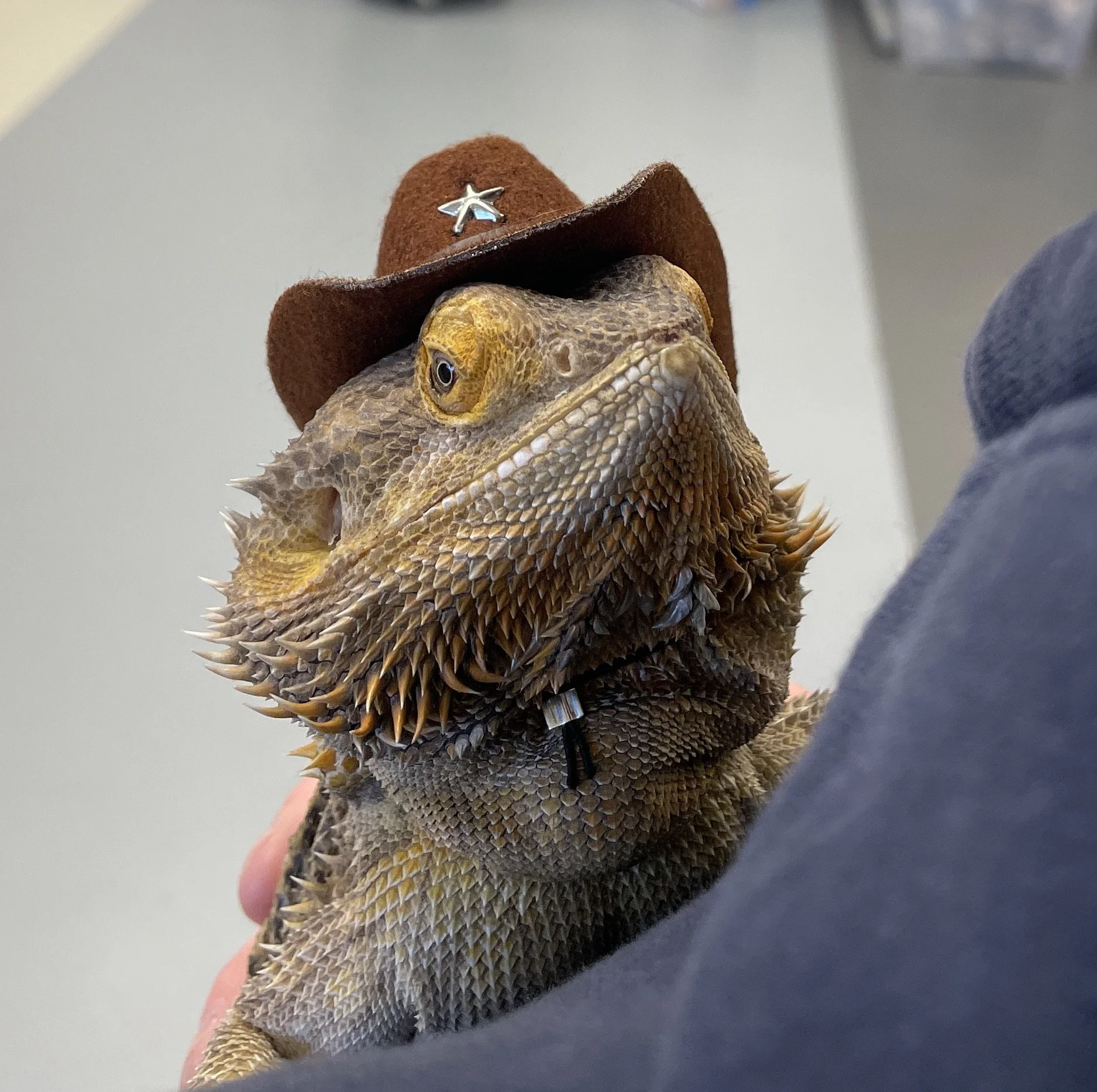Exotic Pets
Reptiles, birds, rodents, rabbits, fish, amphibians and other exotic pets have very special requirements. Most of their health problems arise from management issues like type, size and location of enclosure, proper housing climate, adequate activities, and species-appropriate nutrition.
All animals require fresh water available at all times. Some reptiles may require that the water be treated to remove chlorine and other chemicals.
Animals in enclosures require adequate interest in their environment. Without it, they can become stressed and sick, and may cause harm to themselves or others. Enclosures should be generously sized. If your pet has free roam time, make sure the space is safe.
Some birds and reptiles may live for decades. They are a long-term investment, so make sure you research your proposed exotic or avian pet thoroughly before committing.
Some exotics may require live prey like crickets or mealworms, some may eat animals, vegetables and fruits, and some may eat vegetables and fruits only. Vegetables should be nutritionally dense (i.e. not iceberg lettuce).
Reptiles may have very different humidity, temperature and lighting requirements based on where they are from. For instance, some geckos are arid desert geckos (but still need a humid area for shedding), and some are temperate forest geckos. Most reptiles require an ultraviolet light source, as well as a warm/cool gradient.
Birds do not all eat the same thing. Birds are all different species and have very different nutritional needs.

